-
"We carry the nomadic spirit in ourselves and feel the need to travel “till the Last Sea” and beyond" - An interview with Darkestrah
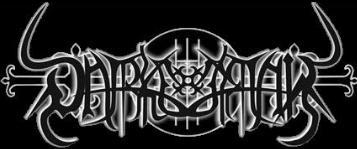
Sebastian Kluth: “Hello from Canada and thanks for accepting this great interview occasion for me. Could you first introduce yourself to our readers?”
Asbath: “Hello, Sebastian! Asbath here. Darkestrah is an epic shamanic black metal band born in Bishkek, Kyrgyzstan in 1999 and reformed in Leipzig, Germany, after me and Kriegtalith have moved there. We have released two demo tapes, five full-length albums and two EPs so far. Both demos and the first album were recorded by the first Kyrgyz incarnation of Darkestrah. All other stuff has been recorded in Germany. Right now Darkestrah are Krigtalith on the vocals, Ragnar on the guitars, Cerritus on the bass and the shaman drum, Resurgemus plays keyboards and takes care of the samples and I play drums in the band.”
Sebastian Kluth: “I think that your band name “Darkestrah” is quite interesting. Is it a mixture of the words “dark” and “orchestra” or does it have a different meaning? Why did you pick that name?”
Asbath: “In fact, the real meaning of the word Darkestrah can only be unveiled to those initiated to the “Higher Mysteries”. If the laymen ever knew it, the world would be doomed. Akyr Zaman, the end time, will come and humanity will be destroyed. We don’t want this to happen, don’t we? Haha.”
Sebastian Kluth: “Alright, sure. You describe your music as Epic Shamanic Black Metal. What do you mean by “shamanic”?”
Asbath: “Shamanism is an integral part of traditional culture in Central Asia which is the main inspiration for us. In our musical work we try to create a gloomy and mystical atmosphere of shamanic rituals.”
Sebastian Kluth: “What and who are your main musical inspirations?”
Asbath: “As I wrote in my previous answer, our main inspirations are traditional Central Asian culture, music, history and beliefs. Other great sources of inspiration are the landscapes of Kyrgyzstan, its mountains, lakes and forlorn ancient ruins.”
Sebastian Kluth: “You started your career in Kyrgyztan back in 1999. How did you discover metal music? Did your works meet critical acclaim in your home country? How were the general conditions to record an album or play concerts?”
Asbath: “I first came in contact with metal music in the early nineties. Metallica’s “Enter Sandman” was on the radio and when I heard it for the first time my life changed forever. More extreme kinds of metal were not that easy to discover. There were some pirate cassettes but the assortment was limited and rather strange. Some pretty obvious titles were extremely hard to find whereas some of the more obscure ones were sold everywhere. Anyways, it was enough for me and the likes. In the late nineties, Kyrgyz scene was huge. There were a lot of great bands and live shows every week. But there were almost no recording possibilities. There were no decent studios, not a single one, so almost all the bands from that times left no trace. We’ve managed to record “Sary Oy” with a home computer but at that time a computer capable of producing a tolerable record was a rarity in Kyrgyzstan.”
Sebastian Kluth: “Can you tell us more about the rock and metal scene in Kyrgyztan or its neighboring countries? Are there any bands worth to mention? What about renowned concert venues or appealing festivals?”
Asbath: “All the bands that emerged in the late 90s are dead now. I could name bands, such as Neocrima, Extrimistic Noise Clan, Dambrtash and a couple of others, but as I told you before, they all left very few to no records. I’m not really sure about what’s with the metal scene in Kyrgyzstan now, but I’m afraid that there is nothing worth mentioning. As far as I understand the situation in Kazakhstan is getting a little bit better by now. On the other hand, especially the traditional music flourishes. Check Ordo Sakhna for starters.”
Sebastian Kluth: “A while ago, Darkestrah has been relocated to Germany. Why and how did this happen? “
Asbath: “Kriegtalith and I moved to Germany in the early 2000s with our families. All other members remained in Kyrgyzstan, so this could have already been the end of our band, but after a while it became clear to us that Darkestrah had to live again. So we’ve found new musicians in Leipzig and it went on!”
Sebastian Kluth: “Do you still have close ties to Kyrgyztan and what do you think about its current economical, political and social situation?”
Asbath: “I have strong personal ties to Kyrgyzstan, a lot of my good old friends and relatives are still living there. Concerning the politics and stuff, I’m really no expert in politics and I don’t want to talk about it too much. But, well, the current state of affairs in Kyrgyzstan is a total mess, as it was ever since the end of the Soviet Union. And everything will remain the same for decades. The current regime will be most surely overthrown by revolution as the previous two were in their turn, and then everything will repeat again. When traditional nomadic family-based views of life meet modern political technologies, the result is a catastrophe.”
Sebastian Kluth: “Recently, two new musicians have been added to your line-up. How did it come to this progression? How does it feel to work as quintet now instead of a trio? Did the new members integrate well and how much do they have to say on the artistic direction of the band?”
Asbath: “It feels great! Both new members have joined us as session live performers but after a while it was clear that they fit perfectly into Darkestrah. So right now they are both full-time members. Ragnar takes a big part in composing and Cerritus works with the lyrics and helped us with some press work ever since “Khagan”. He is also an old friend of mine.”
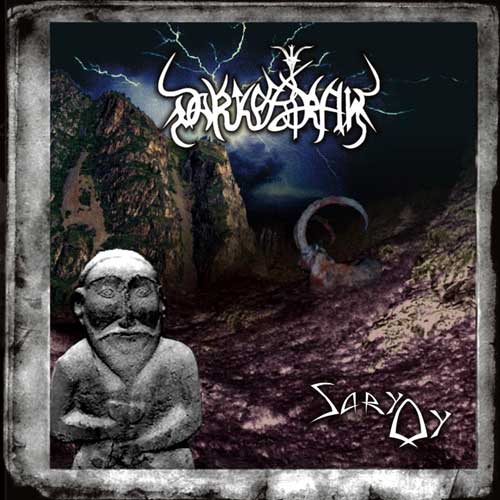
Sebastian Kluth: “Let’s take a look on each of your studio records. What is the concept and meaning behind “Sary Oy”? Tell us more about the different exotic folk instruments used on this album. Could you describe them for us? Where did you learn how to play them?”
Asbath: “This is our most nature-related album. It is about rivers and valleys of Kyrgyzstan, magnificent and surrounded by legends. For this album we used komuz, a kind of lute with strings amid of horse hair. We also played the kyl-kyak, a bow instrument. Imagine a kind of hybrid between violin and cello. We also played the sygit and an instrument called temir-komuz which is a Kyrgyz version of the jew’s harp. Our then-guitarist Oldhan played them all. He is a skilled professional musician and could master almost any instrument.”
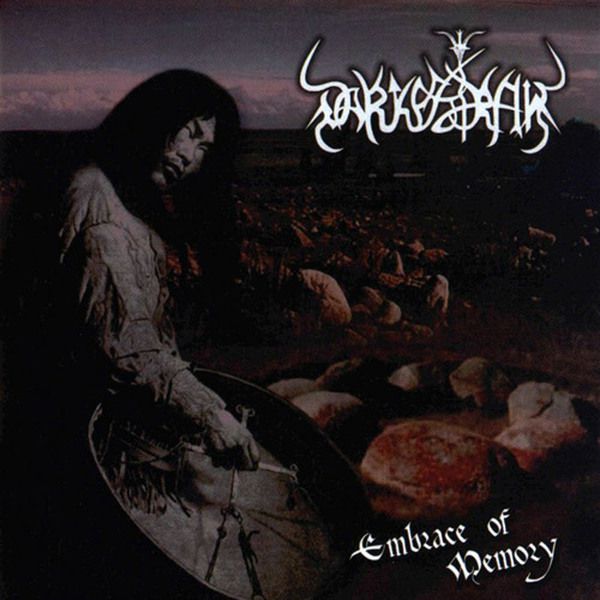
Sebastian Kluth: “Your second album is called “Embrace Of Memory” and the atmospheric album cover immediately grabbed my attention. What’s the relation between the cover artwork and the lyrical content for this release? Who made that artwork?”
Asbath: “Well, “Embrace of Memory” is a militant heathen album. It is about war and ancient beliefs of the nomads that drove them to fight and to conquer. The Mongolian shaman on the front cover calls the spirits of the ancient warriors of the steppe to rise again. Also, the landscape on the background is the shore of the lake Issyk-Kul, which is a hint to the next album. The cover was made by Kriegtalith. She also made all other band artworks except of the “Manas” CD front cover.
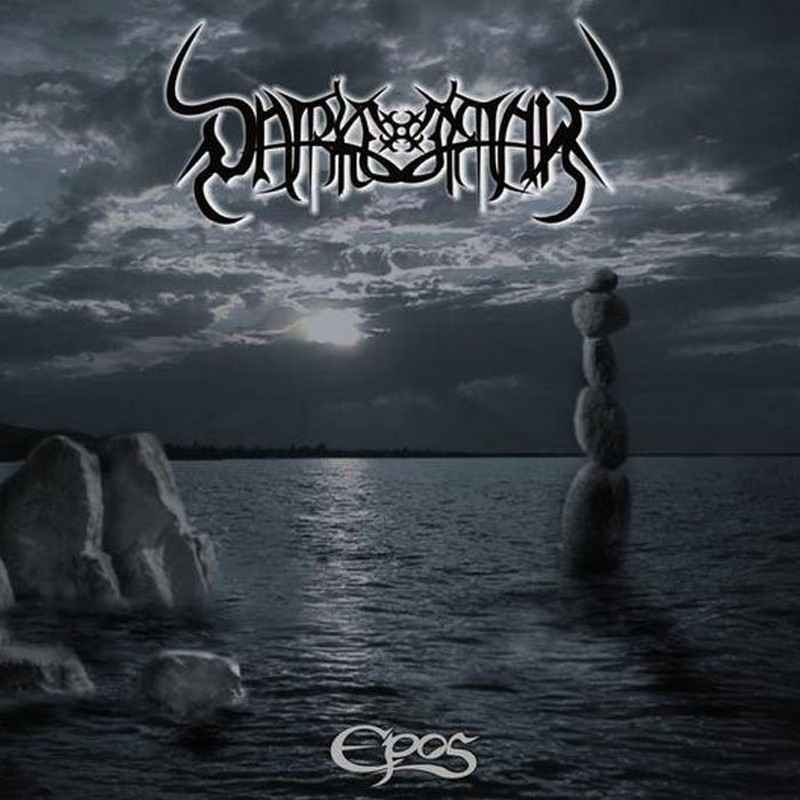
Sebastian Kluth: “Your album “Epos” has in fact a quite epic concept but you didn’t write many lyrics for such a long track. What are the song and the album about?”
Asbath: “The record “Epos” is in fact a concept album dedicated to the lake Issyk-Kul in Kyrgyzstan and the legend behind it. According to this legend there is an ancient city at the bottom of the lake and this ghostly city can be seen at sundown by those who know how to look. Concerning the song structure and the lyrics, “Epos” is constructed in a way that we could easily split it into two parts, which could be performed separately on stage. Normally we play the first part and the main body of lyrics is concentrated in this part, so that it could be perceived as a finished work both musically and lyrically.”
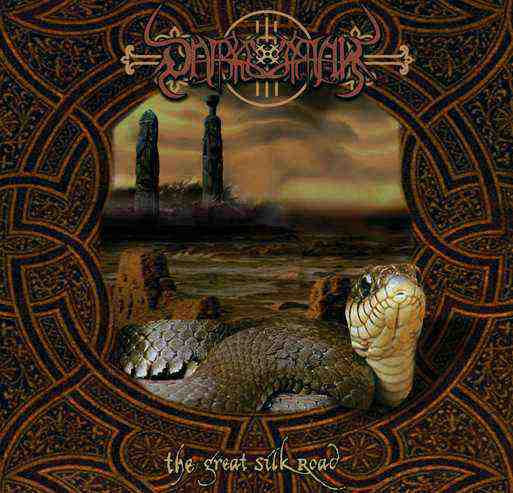
Sebastian Kluth: “Your fourth album is about “The Great Silk Road” Which historical events, which countries and landscapes and which folkloristic approaches did you have in mind during this record’s creative process?”
Asbath: “Well, the Silk Road was a well known caravan route that went all the way from China, through Persia and Central Asia up to the Mediterranean Sea and to Western Europe. A journey through the mountains, steppes and deserts, both real and symbolic is the main topic of the album. One of the central songs of the album called “Cult Tengri” refers both to Tengri, Lord of the Blue Sky, a main deity of Mongolian and Turkic ancient beliefs and the patron of khagans, and to the mountain Khan Tengri in Kyrgyzstan, named after him.”
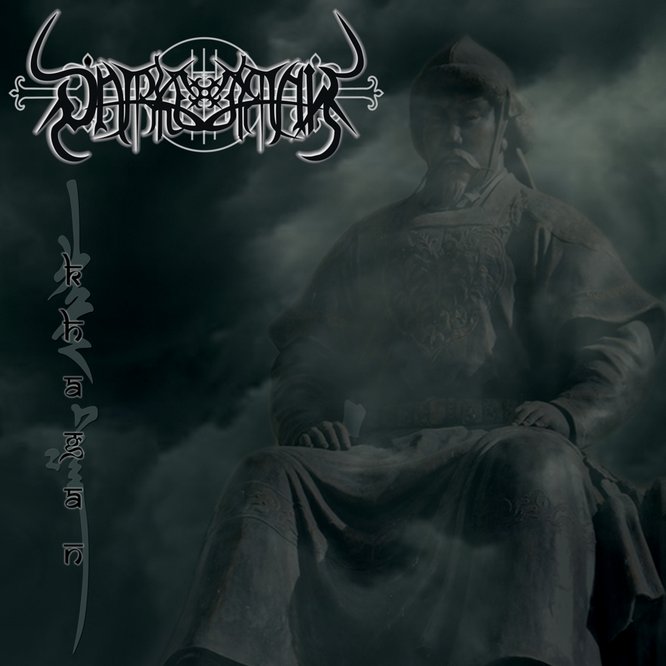
Sebastian Kluth: “Your EP “Khagan” treats the life and works of Genghis Khan. Have you ever been to Mongolia or did you study any particular Mongolian folk elements before you started working on this short album?”
Asbath: “Well, we actually had the insane idea to record the album in Mongolia, but as expected it didn’t work. Instead we’ve recorded the album in Leipzig but with a “Mongolian” sound-quality, which means that this album is raw, unpolished and rather cheaply produced.”
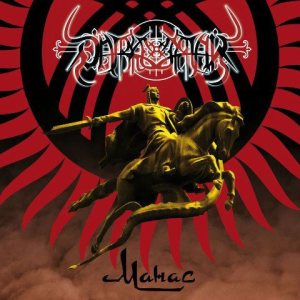
Sebastian Kluth: “If we don’t take into consideration the EP, it took you five years before releasing a new studio album while you released your first four studio record within four years only. How comes that it took you so much time to come around with a new release?”
Asbath: “There were some personal problems, which took us some time. We had a few line-up changes, and so on. This also resulted in rather large time gaps between the song-writing, the recording, and the release. By the way, we consider “Khagan” to be a full Darkestrah album. Unlike “The Way to Paganism”, our other EP, that was mostly a preview of the upcoming “Embrace of Memory” and a strength test of the then-new line-up, “Khagan” is a finished piece of work, with its own special concept and specific message.”
Sebastian Kluth: “This year, you have finally released a brand new album entitled “Manas”. For the very first time, you decided to sing in Russian instead of English. Why did you decide to do so? Was it easier or more difficult to compose lyrics in Russian? Why didn’t you include any Kyrgyz lyrics apart of the narrative samples?”
Asbath: “Vlad Paranoid (another pen-name of Cerritus, our current bass player) is a native Russian speaker. He wrote all the lyrics for “Manas” and almost all the lyrics for “Khagan”. I don’t think it was hard for him to write in his native language. We decided to use Russian because the language sounds raw, wild and gloomy, a perfect match for albums dedicated to war and strife. It was also a kind of joke directed on Russian and Ukrainian Slavonic Metal bands. The Slavs fought a lot with Mongolians and other nomadic people through their history and we thought that they will hate us for that. It seems that the whole thing did not work, since we are still on very good terms with some of these bands, haha.”
Sebastian Kluth: “Please tell us more about the conception behind this record. What’s the essence of the Epic of Manas and how did you approach this traditional folk tale?”
Asbath: “Let’s say that “The Epic of Manas” or “Manas Destanı” is a Kyrgyz national epic. It is considered to be the largest epic poem in human history. The plot revolves around the exploits of Manas, a young batyr whose birth was predicted. Manas unifies the scattered and partially enslaved Kyrgyz tribes into one strong host and recaptures the sacred land of Ala-Too, the Motley Mountains that were occupied by enemy tribes. A lot of side-stories, flashbacks and so on are also incorporated into the text. Since “Manas” is really huge, we decided to omit the song-writing scheme, that is standard for such albums, when the story is divided into parts and for each part a separate song is written. Instead the two songs from the album “Манас-мститель” and „Манас-батыр“ outline the general story and the other songs are more like reflections on such topics as the loneliness of an exile, enemy yoke, and the bloody price of victory that have strong relation to the epic.”
Sebastian Kluth: “Let’s talk about concerts. Are you able to bring and reproduce all your exotic folk instruments and different singing styles on stage?”
Asbath: “It is almost impossible to reproduce all these instruments live and to mix the whole thing with a metal band performance. So we use just some (shaman drum and occasionally temyr-komuz) and rearrange other songs so that the folk parts could be played by guitar or keyboards. We also use a lot of samples and a background video (if it is possible) to keep the atmosphere. Kriegtalith does all her vocal parts on stage as she does on the records; it was never too hard for her.”
Sebastian Kluth: “What have been your greatest and your worst live experiences until now and why?”
Asbath: “The best show so far for us was at the Crosne Medieval Festival in Paris. It was the first time we headlined a big festival and it just felt great! We also enjoyed our last show so far, the one at the Turkish Metal Battle Festival in Berlin. The atmosphere of this event was really unique. I don’t really want to talk about bad experiences. We surely had our bad moments, but these are not the things I would like to recall. We’ve learned our lessons and won’t repeat our mistakes.”
Sebastian Kluth: “Are there any special places where you would absolutely like to play one day?”
Asbath: “Yes, we would like to play in Bishkek or at least somewhere in Central Asia! We would absolutely love to come back to our native region now, as experienced musicians. We would also like very much to play overseas. A lot of European metal bands are in a way confined to Europe. But we carry the nomadic spirit in ourselves; we feel the need to travel “till the Last Sea” and beyond as the hordes of old were striving to, haha.”
Sebastian Kluth: “I would definitely support your idea of playing overseas but what are Darkestrah’s realistic plans for the upcoming year 2014 in terms of concerts and recordings?”
Asbath: “There will be no new album in 2014, it is almost for sure. We already have some new material, but we’d prefer to take some time to make the final release as perfect as possible. We already have some live shows planned for 2014 and I think more will follow. Right now our main goal is to play live as much as possible, since we are in the best form we ever were.”
Sebastian Kluth: “Next year will mark the 15th anniversary of Darkestrah. What do you think about releasing a compilation record or a live album for old and new fans for that occasion?”
Asbath: “I really can’t say now. We have some plans, but everything is still rather uncertain…”
Sebastian Kluth: “Thanks a lot for this great interview. The last words to our readers from all around the world are yours!”
Asbath: “We would like to thank all our fans for supporting us. Darkestrah will never stop, so expect us! Also thank you for the interesting interview. Best regards, Asbath!”
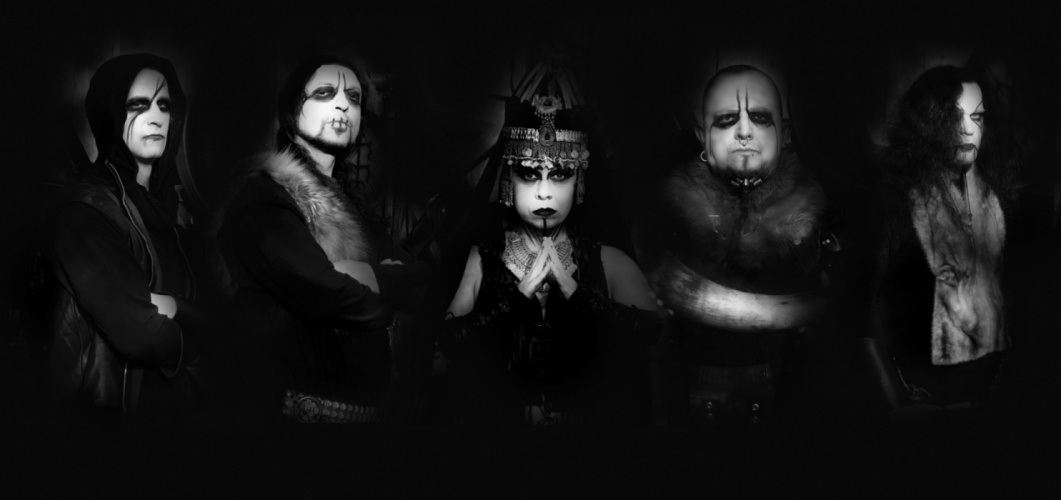 « Interview with the epic blackened folk metal band Darkestrah from KyrgyzstanEntrevue avec le groupe parisien "The Old Dead Tree" »
« Interview with the epic blackened folk metal band Darkestrah from KyrgyzstanEntrevue avec le groupe parisien "The Old Dead Tree" »








